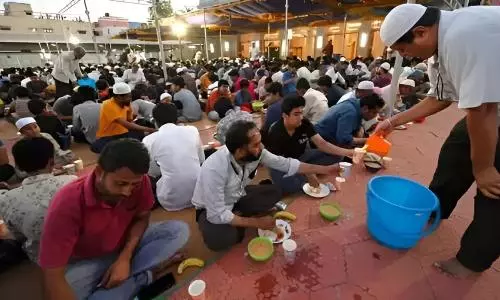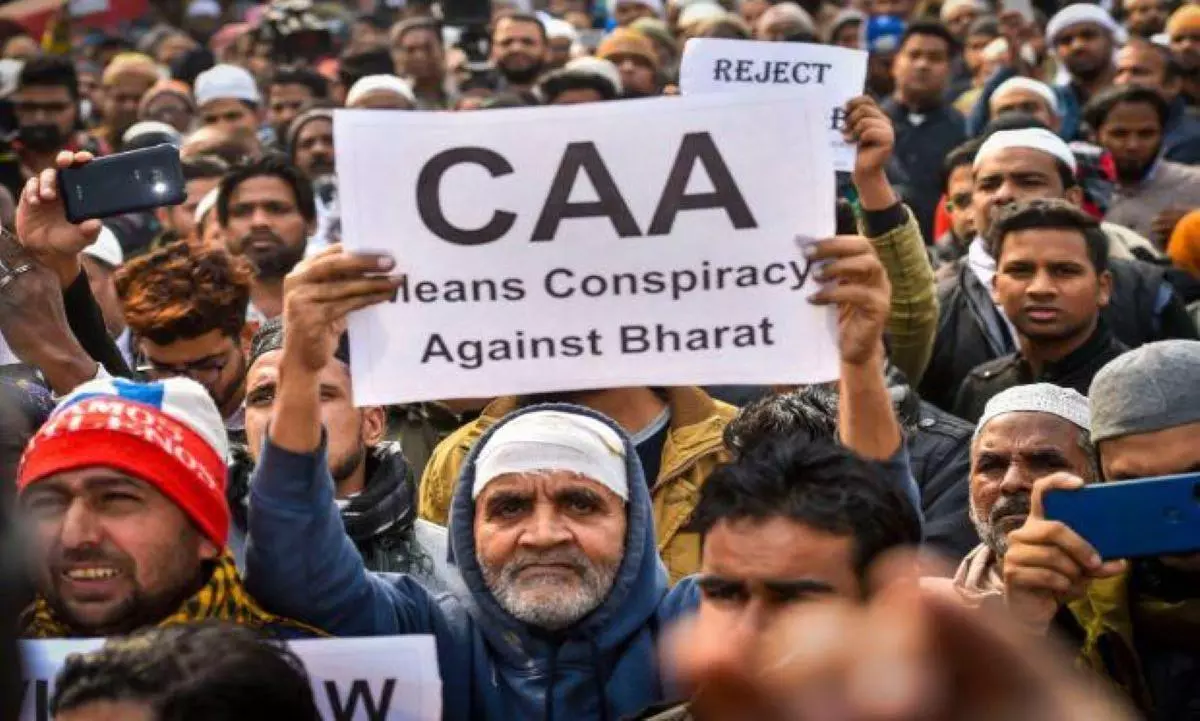
Centre set to implement CAA rules, excluding Muslims ahead of Lok Sabha polls
text_fieldsNew Delhi: What is viewed to be another gimmick by the ruling BJP government with a recent statement on the readiness of rules to implement the controversial Citizenship (Amendment) Act (CAA), which categorically excluded Muslims, before the Lok Sabha elections in 2024.
The Central government in a statement announced the readiness of rules pertaining to the CAA Act to be implemented with the aim of expediting Indian citizenship for Hindus, Sikhs, Buddhists, Jains, Parsis, and Christians who migrated to India due to religious persecution in Pakistan, Afghanistan, and Bangladesh.
Despite being passed in December 2019, the implementation of the CAA has been delayed, leading to widespread protests across the country. Now, government sources reveal that the rules are ready, and an online portal has been established for a seamless application process. The entire procedure is expected to be conducted online, allowing applicants to apply even from their mobile phones.
The government asserts that the rules for the CAA will be issued in the coming days, and once implemented, eligible individuals can be granted Indian citizenship. Notably, applicants will need to declare the year of their entry into India without travel documents, and no additional documents will be required. Requests from applicants who applied after 2014 will be processed according to the new rules.
Sources indicate that the government aims to notify the rules well before the announcement of the Lok Sabha elections. The move has sparked speculation about the potential impact of the CAA on the electoral landscape, as the legislation has faced vehement opposition in various states, including Assam and Tripura.
The concerns in Assam revolve around the perceived threat to the state's demographic balance and the violation of the 1985 Assam Accord.
A key factor contributing to the delay in implementing the CAA has been the fierce opposition it encountered in multiple states. Protests have not only remained confined to the North-East but have spread across the country. The legislation has also been challenged in the Supreme Court through petitions, including one by the Indian Union Muslim League, questioning its constitutional validity.
Critics argue that the CAA's exclusion of certain persecuted communities, such as the Rohingya from Myanmar, Tibetan Buddhists from China, and Tamils from Sri Lanka, makes it arbitrary and discriminatory. However, the government has defended the legislation, asserting that it addresses the specific problem of religious persecution in Pakistan, Afghanistan, and Bangladesh.
Union Home Minister Amit Shah, in a recent address in West Bengal, reiterated the BJP's commitment to the CAA, dispelling any doubts about its implementation. He emphasized that the law is applicable to all eligible individuals, and the CAA is the "law of the land."
The government's repeated extensions for framing the rules have now culminated in the readiness of the online portal and the impending issuance of the rules.























